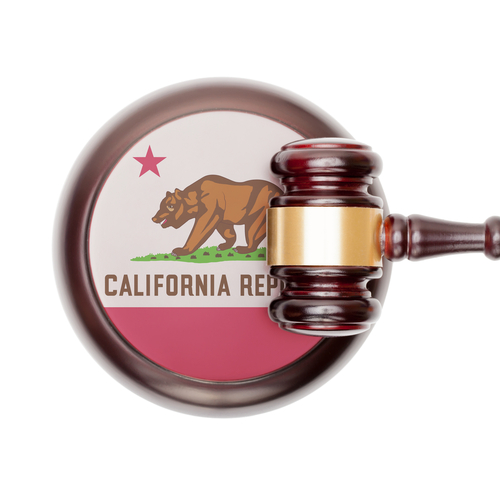Bystander can be on phone instead of scene to sue for distress of witnessing daughter's crash, top state court says

A mother who heard her daughter’s car crash while giving her directions by cellphone is entitled to recover for emotional distress, even though she wasn’t aware of the defendants’ alleged role in causing the accident, the California Supreme Court ruled last week. (Image from Shutterstock)
A mother who heard her daughter’s car crash while giving her directions by cellphone is entitled to recover for emotional distress, even though she wasn’t aware of the defendants’ alleged role in causing the accident, the California Supreme Court ruled last week.
The state supreme court ruled July 22 for plaintiff Jayde Downey, who alleged that the city of Riverside, California, and nearby property owners were partly responsible for her daughter’s crash because of negligent placement of traffic signals and vegetation obstructing the view of the car that crashed into hers.
Dillon v. Legg, a 1968 California Supreme Court decision, recognized that a bystander can recover for negligent infliction of emotional distress when witnessing an event that injured a close relative but only when the plaintiff is at the scene and aware the incident is causing injury.
Dillon involved a parent who watched a negligent driver collide with her child. The parent was allowed to sue for negligent infliction of emotional distress in the death of her daughter, even though she was not in the “zone of danger.”
“The facts of this case require us to consider a new question about emotional distress recovery: What if the plaintiff is aware that injury has been inflicted on the victim but not of the defendant’s role in causing the injury?” the California Supreme Court asked.
The plaintiff should be able to recover, the state supreme court said.
“For purposes of clearing the awareness threshold for emotional distress recovery, it is awareness of an event that is injuring the victim—not awareness of the defendant’s role in causing the injury—that matters,” the California Supreme Court said.
Law360 covered the decision, Downey v. City of Riverside.
A lawyer for Downey, Greg Rizio, told Law360 that he doesn’t think that the decision will lead to a spike in negligence claims.
“One of the defense’s arguments said there will be a mass amount of filings, but to file a case like this, you have to be a close family relative, you have to perceive [the incident], and on top of that, it has to give you emotional distress,” Rizio told Law360.
“I’ve done personal injury for almost 35 years, and in that time, I’ve only had around 10 really good [negligent infliction of emotional distress] cases—so I don’t think there is going to be a rash of filings,” he said.



